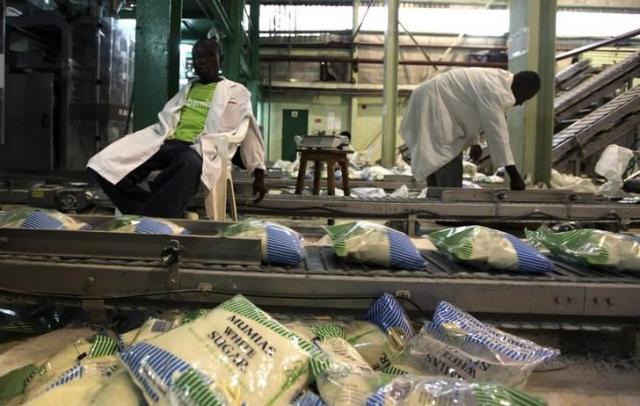Mumias sugar is still one of the largest millers in Kenya. In its heyday it sweetened a lot of peoples’ tea, and by extension many lives. Children were schooled with proceeds from sugarcane, and even the government felt the contribution of Mumias to the economy.
Unfortunately, corruption and mismanagement brought the miller to its knees and with it the sugar industry. Whereas it was first noted that all was not well with the miller around 2012, it has continued to wallow in doom news since then. Its defeatist attitude, constant whining and thirst for bail outs will ensure that this decade is wasted. Indeed if not careful the current leadership will be presiding over the last phase of the miller. And as it has been on the death bed for so long (check the NSE), its death will be neither shocking nor surprising. And with private millers and imports filling the gaps, it won’t be missed that much. Nakumatt and Uchumi have demonstrated that life goes on. But it does not have to end that way. The leadership, led by Mr Aseka, have a chance to revive and let the ailing miller thrive. Though the challenges be many, all is not lost. And not all its challenges require money to fix.
For starters, the miller seems not to have a plan. In 2014, it closed its factory due to sugarcane shortage. In 2018, it’s still closing down due to lack of cane. If cane takes 2 years to mature, why not have a goal that 2021 the company won’t close down due to cane shortage? It would require hard work and focus but that’s what leadership is all about. And if successful, it would be a reason for celebration, a morale booster for employees, and confidence shot to the stakeholders that resources invested are not wasted. And of course its bottom line would improve. And closing down the whole company regularly for repairs and maintenance, does not sound right nor strategic in the long term. The leadership should find a way around that.
The company also needs to work on accountability and transparency. Whether for past misdeeds by yesterday leaders, or the use of resources by current management. Whether for bail out funds from government, or whether the sugar packaged in Mumias package is indeed from its farmers’ gardens. Being accountable will help it generate goodwill, show where progress is being made and lead to honest conversations on how to improve. Currently, it’s often seen as bottomless pit that drains tax payer’s funds. And viewed with suspicions by the government, and farmers.
Finally, Mumias Sugar, should remind itself that its core mandate is to produce sugar. Large offices, many managers and fancy packaging means nothing if sugar is not milled. If the sugar cane is not coming to the factory, then reassign the workforce and send it to the field where the producers are. Truth is, the workers are complicit in the cane poaching or have a solution to the menace. Similarly a plainly packaged sugar that’s truly from Mumias is better to its bottom line than branded sugar that is not from its farms or charged too high for the price conscious consumer.
As all stakeholders play their part, the management are up to the noble task of reviving the sleeping giant. And though there are beneficiaries of a failed Mumias, many more benefit when a public private entity succeeds. Just look at Safaricom.
Kariuki Gathuitu
Pobox75704-00100




